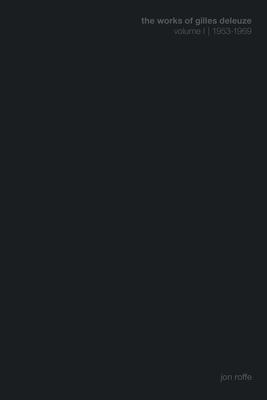The first of two volumes, The Works of Gilles Deleuze I: 1953-1969 introduces, book by book, the philosopher's daunting corpus, from his early monographs on Hume, Nietzsche, Kant, and Bergson; to the "literary clinic" he creates in relation to Proust and Masoch; and, finally, to the landmark publication of Difference and Repetition (1968) and Logic of Sense (1969). Perhaps no one is better suited to this ambitious undertaking than Jon Roffe. Possessing an encyclopedic knowledge Deleuze's work, he also claims an intimate familiarity with so many of the philosopher's sources, subjects, and conceptual personae. With enviable clarity, Roffe's eight substantial chapters adroitly elaborate the circumstances and argument, problems and concepts all but one of the nine books from this period. Indeed, the uniqueness of this volume consists in forgoing any reductive synthesis of Deleuze in order to elaborate each of his major publications on its own terms. The Works of Gilles Deleuze I is incredibly useful, deeply pedagogical, and structurally ingenious.

The first of two volumes, The Works of Gilles Deleuze I: 1953-1969 introduces, book by book, the philosopher's daunting corpus, from his early monographs on Hume, Nietzsche, Kant, and Bergson; to the "literary clinic" he creates in relation to Proust and Masoch; and, finally, to the landmark publication of Difference and Repetition (1968) and Logic of Sense (1969). Perhaps no one is better suited to this ambitious undertaking than Jon Roffe. Possessing an encyclopedic knowledge Deleuze's work, he also claims an intimate familiarity with so many of the philosopher's sources, subjects, and conceptual personae. With enviable clarity, Roffe's eight substantial chapters adroitly elaborate the circumstances and argument, problems and concepts all but one of the nine books from this period. Indeed, the uniqueness of this volume consists in forgoing any reductive synthesis of Deleuze in order to elaborate each of his major publications on its own terms. The Works of Gilles Deleuze I is incredibly useful, deeply pedagogical, and structurally ingenious.